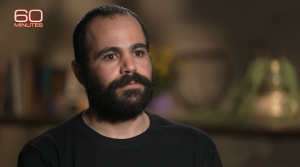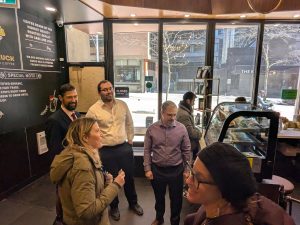The vocation of a rabbi is to teach Torah and live by its precepts. To be a chief rabbi is to dabble in politics. That’s why the office often diminishes the person who holds it. Jewish tradition doesn’t know of chief rabbis. It respects rabbis not by the office they hold but by the people they are, their level of learning and the humanity that informs their relationships.
Even Rabbi Jonathan Sacks, arguably the most articulate and impressive exponent of contemporary Judaism in general and modern Orthodoxy in particular, didn’t exactly shine as Britain’s chief rabbi. Mercifully, he retired in time to recover his deserved stature and reputation.
Rabbi David Lau is neither a Rabbi Sacks nor a Rabbi Benny Lau, his first cousin and one of the most persuasive rabbis, teachers and scholars in Israel today. Before Rabbi David Lau assumed his present office, he was rabbi of Modi’in, a growing town halfway between Tel Aviv and Jerusalem, and was appreciated for his moderation and his humanity. I’d watch him often on Friday afternoons on Israeli TV, when he answered halachic questions. I was impressed by his understanding of human beings and his gentle way of exposing them to Jewish law.
On a visit to the United States not long before he was elevated to what some regard as high office, Rabbi Lau met with lay and rabbinic federation leaders from all streams of Judaism. He described himself as “your brother in Israel.” In the course of that visit, he also went to a pluralistic Jewish day school in Washington D.C., where he told the students, “You are Jewish life in this city.”
All that goodwill seems to have evaporated when he was appointed Ashkenazi chief rabbi of Israel, following, like his current Sephardi counterpart, in the footsteps of his father.
A recent example of the younger Rabbi Lau’s change of attitude is reflected in his attack on Israel’s education minister, Naftali Bennett, who is also the minister of Diaspora affairs. Rabbi Lau strongly criticized Bennett for recently visiting the Solomon Schechter (Conservative) Day School in New York City, which, by all accounts, isn’t very different from the one Rabbi Lau visited in Washington.
Critical reactions to his attack on Bennett came from many quarters. The most cogent was in the Jerusalem Post by Rabbi Shlomo Riskin, another significant and open Orthodox rabbi in the country. Rabbi Riskin reminded readers that “Rabbi Moshe Feinstein, the greatest halachic decisor in 20th-century America, ruled that Orthodox rabbis may teach in Conservative day schools and Hebrew schools.”
What’s good for Orthodox rabbis in America is, according to Rabbi Lau, not good enough for Israel’s minister of education and Diaspora affairs.
Rabbi Riskin lamented: “How far the present chief rabbis of Israel have wandered from the inclusive vision of our first chief rabbi, Rabbi Yitzchak Hacohen Kook” (1865-1935). A self-confident strong individual can overcome the limitations of petty politics imposed by the office. Rabbi Kook’s biography testifies to it.
That was also my experience in Britain, where I had the privilege to get to know and collaborate with the late Rabbi Immanuel Jakobovits (1921-1999), Rabbi Sacks’ predecessor in office. The pressures on Rabbi Jakobovits were enormous. His colleagues who claimed the franchise on Jewish law saw non-Orthodox exponents of Judaism as sworn enemies. Yet he withstood the pull to the far right during much of his tenure and remained determined to represent the entire community.
READ: MEET THE RABBI WHO SERVES AS THE POPE’S COMEDIC ADVISER
If, contrary to tradition but in compliance with the institution created by the British during their mandate in Palestine, Orthodoxy in Israel wants to appoint a figure to fulfil the role of an archbishop, it should at least choose someone who can match the vision, the humanity and the independence of spirit of Pope Francis.
Since that’s unlikely to happen anywhere, alas, Jewish communities that aren’t burdened by chief rabbis are fortunate. Canada is one of them, thank God.






